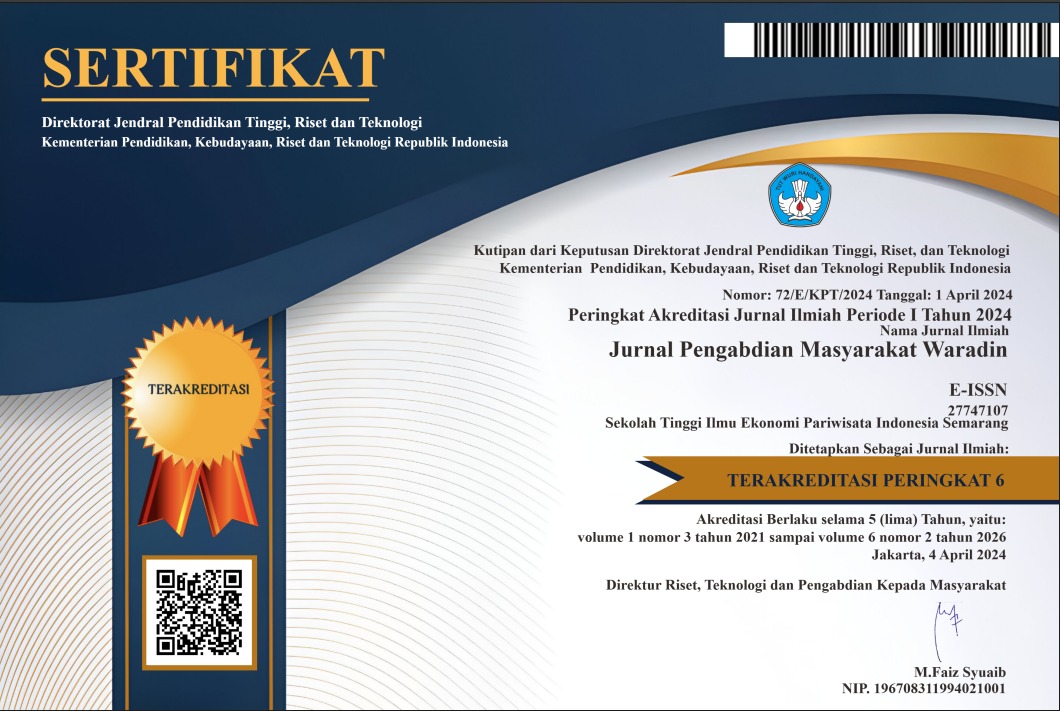Sosialisasi Ekonomi Syariah Berbasis Lahan Basah di Kabupaten Banjar Provinsi Kalimantan Selatan
DOI:
https://doi.org/10.56910/wrd.v5i1.438Keywords:
Sharia Economics, Wetlands, Banjar Regency, Economic Welfare.Abstract
Sharia economics has become an increasingly popular alternative in the global economic system because of its fair and ethical principles. In Banjar Regency, South Kalimantan Province, the economic potential based on wetlands has not been fully exploited optimally. This research aims to investigate and socialize the implementation of wetland-based sharia economics in the area, with a focus on the potential to increase the welfare of local communities. The research method used is a qualitative-descriptive approach with data collection through in-depth interviews, observation and literature study. The research results show that the socialization of sharia economics in Banjar Regency has not been implemented optimally, even though there is public awareness of sharia principles. The main obstacles faced include threatening public knowledge, lack of government support, and restrictions on access to Islamic financial institutions. This research concludes that there is a need for a comprehensive socialization strategy and collaboration between the government, financial institutions and the community to optimize the use of wetlands within a sharia economic framework. In this way, it is hoped that it can improve the economic welfare of the people of Banjar Regency and make the sharia economy a sustainable economic system.
References
Antonio, M. S. (2001). Bank syariah: Dari teori ke praktik. Jakarta: Gema Insani Press.
Chapra, M. U. (2000). The future of economics: An Islamic perspective. Leicester: The Islamic Foundation.
Ismail, A. G. (2010). Money, Islamic banks and the real economy. Singapore: Cengage Learning.
Shaddiq, S., Sulastini, S., & Surya, A. (2024). Ekonomi syariah dan pengentasan kemiskinan: Perspektif Syekh Muhammad Arsyad Al Banjari.







